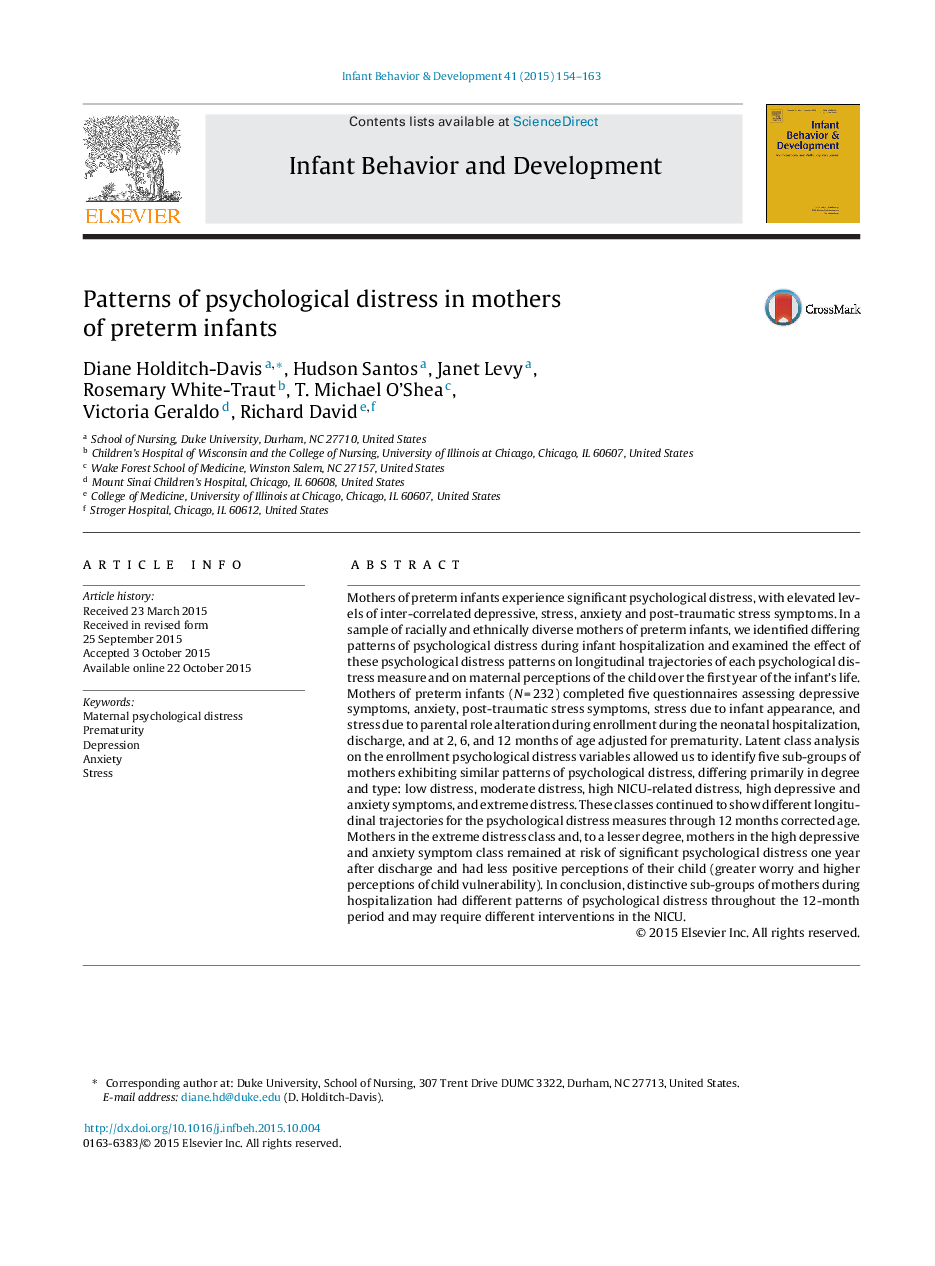| کد مقاله | کد نشریه | سال انتشار | مقاله انگلیسی | نسخه تمام متن |
|---|---|---|---|---|
| 917172 | 1473419 | 2015 | 10 صفحه PDF | دانلود رایگان |
• Mothers of preterm infants often experience marked psychological distress over time.
• Sub-groups of mothers experience distinctive patterns of psychological distress.
• Mothers’ risk for ongoing distress can be predicted during infant's hospitalization.
Mothers of preterm infants experience significant psychological distress, with elevated levels of inter-correlated depressive, stress, anxiety and post-traumatic stress symptoms. In a sample of racially and ethnically diverse mothers of preterm infants, we identified differing patterns of psychological distress during infant hospitalization and examined the effect of these psychological distress patterns on longitudinal trajectories of each psychological distress measure and on maternal perceptions of the child over the first year of the infant's life. Mothers of preterm infants (N = 232) completed five questionnaires assessing depressive symptoms, anxiety, post-traumatic stress symptoms, stress due to infant appearance, and stress due to parental role alteration during enrollment during the neonatal hospitalization, discharge, and at 2, 6, and 12 months of age adjusted for prematurity. Latent class analysis on the enrollment psychological distress variables allowed us to identify five sub-groups of mothers exhibiting similar patterns of psychological distress, differing primarily in degree and type: low distress, moderate distress, high NICU-related distress, high depressive and anxiety symptoms, and extreme distress. These classes continued to show different longitudinal trajectories for the psychological distress measures through 12 months corrected age. Mothers in the extreme distress class and, to a lesser degree, mothers in the high depressive and anxiety symptom class remained at risk of significant psychological distress one year after discharge and had less positive perceptions of their child (greater worry and higher perceptions of child vulnerability). In conclusion, distinctive sub-groups of mothers during hospitalization had different patterns of psychological distress throughout the 12-month period and may require different interventions in the NICU.
Journal: Infant Behavior and Development - Volume 41, November 2015, Pages 154–163
